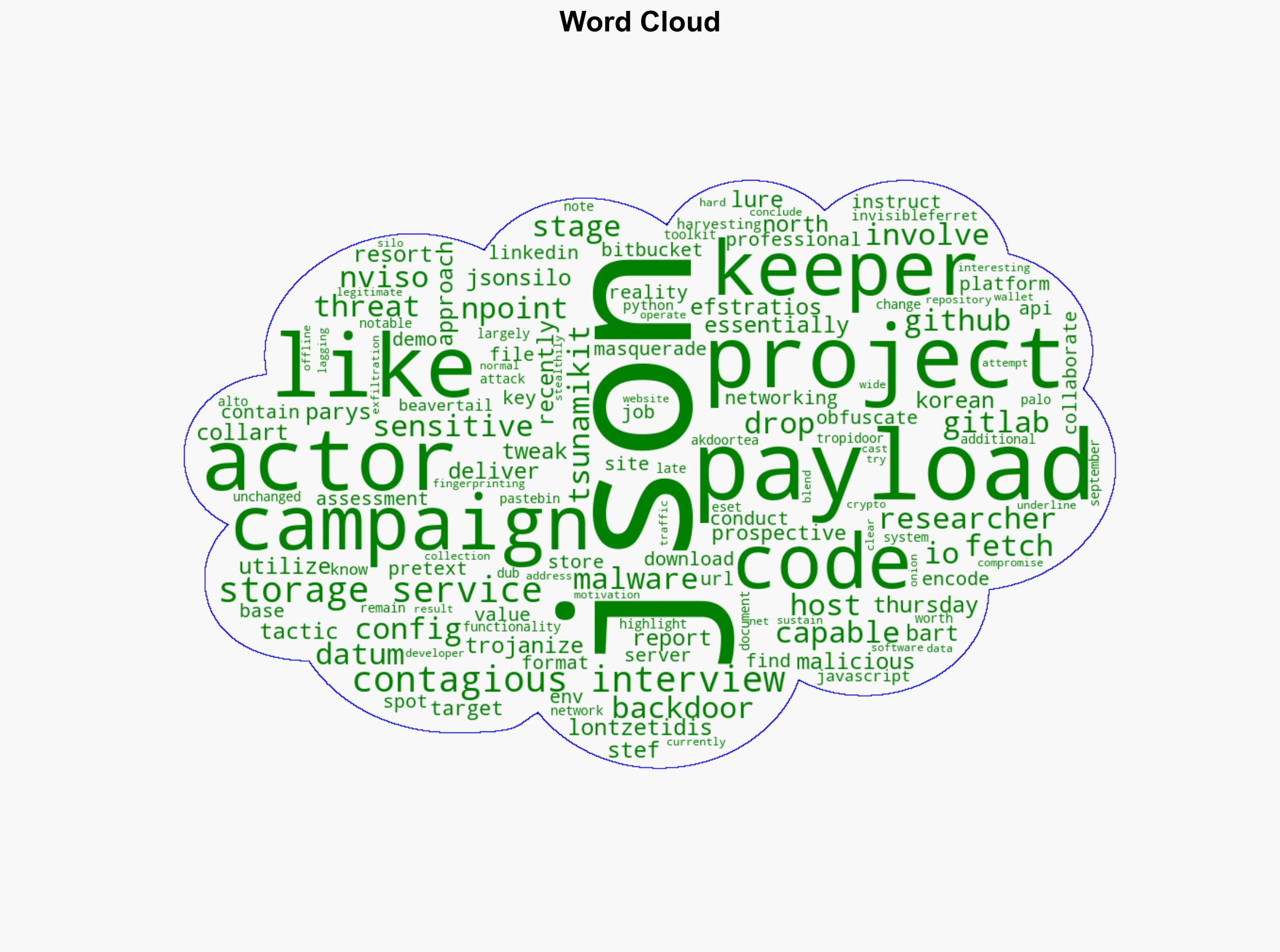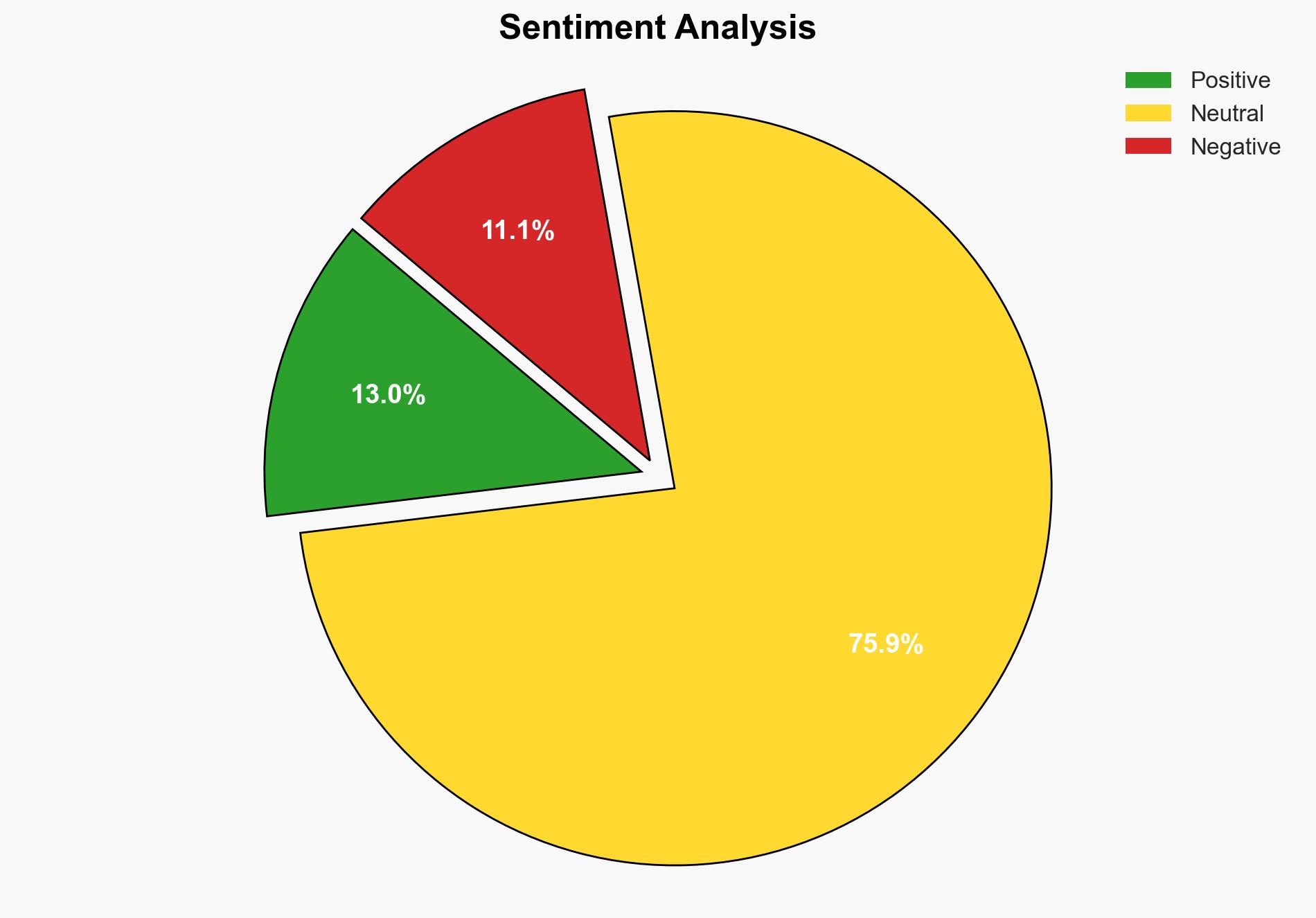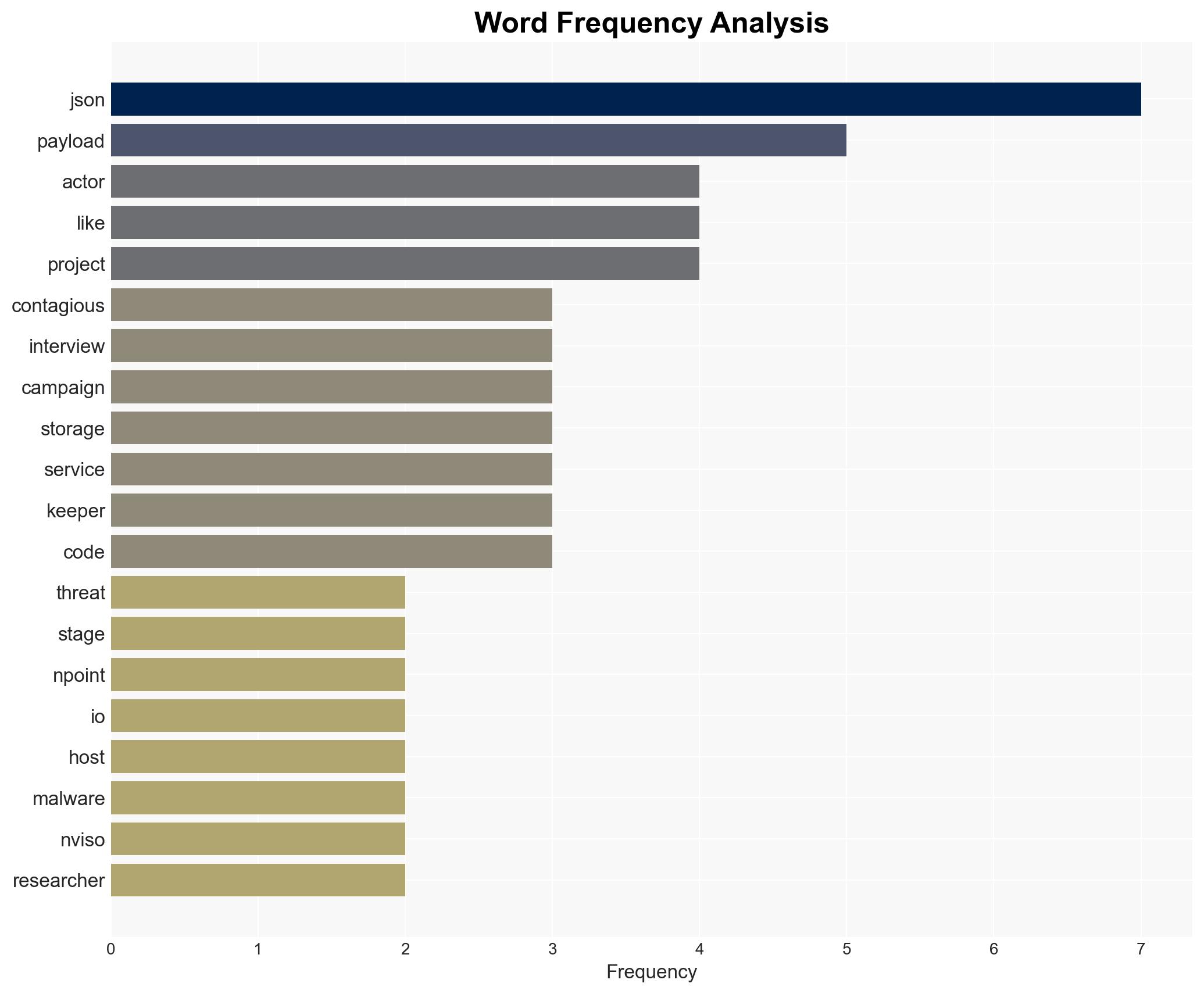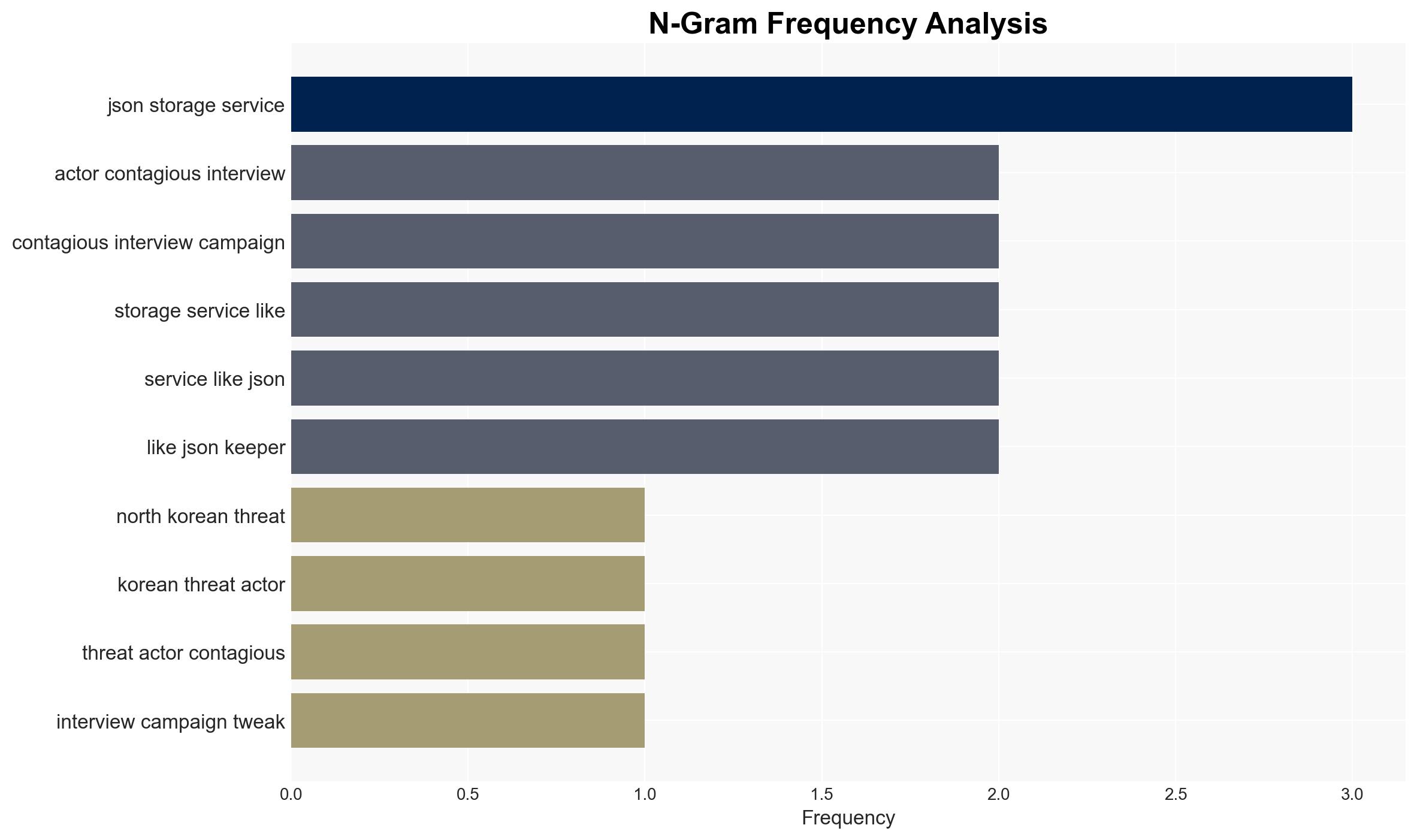North Korean Hackers Turn JSON Services into Covert Malware Delivery Channels – Internet
Published on: 2025-11-14
AI-powered OSINT brief from verified open sources. Automated NLP signal extraction with human verification. See our Methodology and Why WorldWideWatchers.
Intelligence Report: North Korean Hackers Turn JSON Services into Covert Malware Delivery Channels – Internet
1. BLUF (Bottom Line Up Front)
The most supported hypothesis is that North Korean threat actors are leveraging JSON storage services to covertly deliver malware, aiming to compromise software developers and exfiltrate sensitive data. This tactic allows them to blend malicious activities with legitimate traffic, increasing stealth and reducing detection. Confidence Level: Moderate. Recommended actions include enhancing monitoring of JSON services, increasing awareness among developers, and strengthening cybersecurity protocols.
2. Competing Hypotheses
Hypothesis 1: North Korean threat actors are using JSON storage services as a novel method to distribute malware, targeting software developers to gain access to sensitive data.
Hypothesis 2: The use of JSON storage services is a diversion tactic, with the primary objective being to test new malware delivery methods and refine techniques for future, larger-scale operations.
Hypothesis 1 is more supported due to the detailed evidence of specific campaigns targeting developers and the use of professional networking sites to approach targets. The consistent pattern of behavior aligns with known North Korean cyber operations focused on data exfiltration and espionage.
3. Key Assumptions and Red Flags
Assumptions: It is assumed that the JSON storage services are unaware of their platforms being used for malicious purposes. It is also assumed that the threat actors have a high level of technical expertise to exploit these services effectively.
Red Flags: The rapid adaptation of tactics and the use of legitimate platforms for malicious purposes suggest a high level of sophistication and intent to deceive. The obfuscation of payloads and the use of professional pretexts indicate a well-planned operation.
4. Implications and Strategic Risks
The use of JSON services for malware delivery poses significant cybersecurity risks, particularly for software development environments. This tactic could lead to widespread data breaches, intellectual property theft, and potential disruptions in software supply chains. Politically, it may escalate tensions between North Korea and targeted nations, leading to increased cyber defense measures and potential retaliatory actions.
5. Recommendations and Outlook
- Enhance monitoring and security protocols around JSON storage services and similar platforms.
- Conduct awareness campaigns for developers about the risks of downloading projects from unverified sources.
- Collaborate with platform providers to identify and mitigate malicious activities.
- Best-case scenario: Improved detection and prevention measures reduce the effectiveness of such tactics.
- Worst-case scenario: Widespread compromise of software development environments leads to significant data breaches and economic damage.
- Most-likely scenario: Continued adaptation of tactics by threat actors, requiring ongoing vigilance and response enhancements.
6. Key Individuals and Entities
Researcher Names: Bart Parys, Stef Collart, Efstratios Lontzetidis
Entities: JSON Keeper, JSONSilo, Npoint.io, GitHub, GitLab, Bitbucket
7. Thematic Tags
Cybersecurity, North Korea, Malware, JSON Services, Software Development
Structured Analytic Techniques Applied
- Adversarial Threat Simulation: Model and simulate actions of cyber adversaries to anticipate vulnerabilities and improve resilience.
- Indicators Development: Detect and monitor behavioral or technical anomalies across systems for early threat detection.
- Bayesian Scenario Modeling: Quantify uncertainty and predict cyberattack pathways using probabilistic inference.
- Network Influence Mapping: Map influence relationships to assess actor impact.
Explore more:
Cybersecurity Briefs ·
Daily Summary ·
Support us
·





